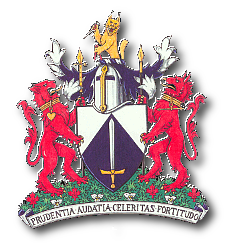Rules of the Salle d'armes

These rules, or at least the origin of the rules of the salle d'armes were originally sourced from Maestro Paul Macdonald. He had a suite of rules that he had composed for his school or in the least, sourced and modified for the Macdonald Academy of Arms. During the time of visiting Edinburgh in 2007, in which David delivered a class on Fiore's dagger techniques to his students on March 26, 2007, discussions on operating a martial arts school during libations following the class at numerous pubs downtown Edinburgh inspired David to 'borrow' the rules from Paul, with his permission of course (during the haze of Scottish ales). David had slightly modified the rules so that they were more relevant to AEMMA.
- That respect and courtesy be regarded between all members of the Academy including students, instructors, visitors, opponents, at all times. Should personal quarrel arise over any matter, the use of weapons available on the floor or personal weapons is not permitted for the resolving of disputes. Any such disputes should be resolved directly, with all immediacy and openness between the relevant individuals.
- That all offensive language such as cursing, swearing, blaspheming, obscene or indiscreet words be banished within the Academy.
- That training weapons of wood or blunted steel be regarded as sharps through all training and bouts, that the appropriate martial approach be better understood and that the delivering and receiving of contre temps be better prevented.
- That students must attend in appropriate attire for training and assaulting other than customary daywear. Such attire is described in detail on the AEMMA website under equipment.
- That no student should undertake the mantle of Tutor in the direction of other recruits, students or schollers without first the Instructor's consent.
- That no recruit under four months teaching be permitted to engage in free fencing bouts, assaults and sparring. After such time a recruit should more rightly possess the required skills to safely assault, given that less trained recruits who freely assault are wont to use less of the Art and more of the instinct, which is contrary to their learning. A less-trained recruit who freely assaults is more a danger to his/her opponent, in that his/her control of offence is less, and dangers himself in that his/her control of defence is less. Four months' learning is a reasonable time for recruits to more understand the principles and train well in control of techniques that they may then be more truly and safely applied in free assault.
- That no recruit or other persons should presume to freely assault within the Academy without first the Instructor's consent.
- That any broken blade be paid for or replaced by whosoever was the cause of its breakage. In assault, the general rule is that the hand which held the blade in question is the hand which pays its replacement lest obvious maltreatment from the opponent is accepted or found as cause.
- That all students including recruits, schollers, etc. are charged to uphold and carry well that which is learned within the Academy outwith its walls. Improper use of the Art of Defence within or outwith the Academy is not expected or permitted of its students.
